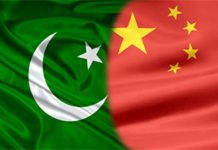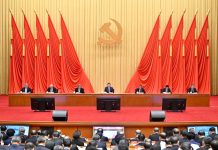BEIJING: By most historical accounts, China began to emerge as a nation-state with the Xinhai Revolution in 1911. The struggle was to transform from a civilization-state to a nation-state, per the model imposed then by the hegemony of Western political models.
Those initial efforts were not successful, with major setbacks to come in negotiations of the Treaty of Versailles in 1919, sparking the May Fourth Movement and also further opening the door to more Japanese aggression as Tokyo took control of Shandong Province in east China and extended its reach elsewhere in China until Japan’s defeat in 1945.
Some in Hong Kong Special Administrative Region and certainly the United Kingdom have long chafed at the idea that Hong Kong is part of China. Their sentiments predate and postdate the return of Hong Kong in 1997.
Perhaps no other country in the world is more responsible than the United Kingdom for initiating China’s “century of humiliation,” a period that saw the British effectively seizing control of Hong Kong and other areas and opening the door for other foreign powers to do the same. The return of Hong Kong was supposed to help heal that difficult history in part. After making British sovereignty the driving principle of Brexit, doesn’t London understand Beijing’s similar position?
To be sure, there are other problems in Hong Kong that have motivated some protesters. These include high costs of living, especially related to housing, that have put a heavy burden on young people, as well as the working and middle classes.
There are other issues, like the lingering influence of Hong Kong’s oligarchy, a relic of British rule when tycoons were closely consulted by an appointed British royal governor. The extent to which the election reforms recently authorized at the annual session of the National People’s Congress, China’s top legislature, dilute the influence of those economically powerful people in Hong Kong will be an index of how these reforms actually promote democracy and address entrenched economic interests that are substantially responsible for some of the economic hardships others face. The word patriot is always double-edged. A patriot is by definition loyal to one nation, over and above others. In contemporary Chinese, there is no ambiguity about the meaning of this term, aiguo zhe.
– The Daily Mail-Beijing Review News exchange item






